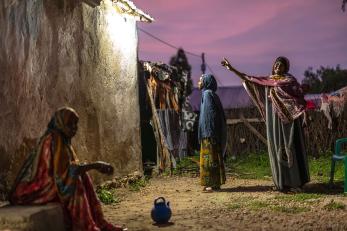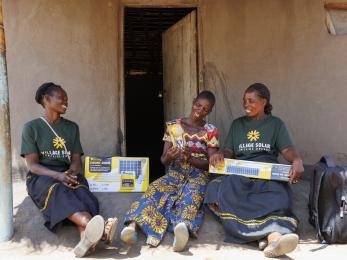Roadmap for Energy Access in Displacement Settings: Ethiopia

This report presents the status of sustainable energy access for displaced and host community households, businesses, and community facilities in displacement settings in Ethiopia. Developed by the Global Platform for Action in partnership with Mercy Corps and based on inputs received during the stakeholder engagement workshop, the READS Ethiopia Report provides an overview of stakeholders working towards SDG 7 and highlights opportunities for high-impact projects to support increased access to sustainable energy for displaced people and host communities.
Ethiopia hosts more than 1 million refugees and 4.3 million IDPs with most living in camps and communities in rural areas. Although challenges persist, the country has supportive policy frameworks for displaced communities which promote access to essential services, economic integration, and livelihoods opportunities, as well as having ambitious national goals for the uptake of sustainable energy.
Despite this, levels of energy access remain very low. Displacement settings in Ethiopia have seen a variety of initiatives for clean cooking, including the use of ethanol and electricity, but have not yet reached scale. Meanwhile the country’s first private sector mini-grid under the current legislation, implemented by Humanitarian Energy PLC, provides an example of the potential for companies to engage in displacement settings. Ethiopia offers a wide range of opportunities to foster the growth of energy projects but much greater investment will be required to match the scale of the needs of displaced people and host communities.

